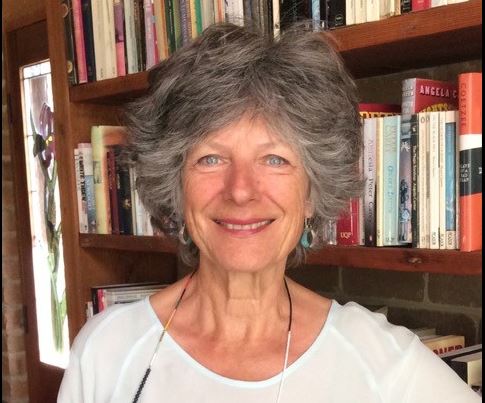
Veterans of performing arts and maritime archaeology at Flinders have been acknowledged as fellows of the Australian Academy of the Humanities.
Award-winning academic scholar and theatre director Flinders Emeritus Professor of Drama Julie Holledge was among 23 leaders made the 2017 Fellows of the Academy.
Professor Holledge pioneered the research fields of feminist theatre historiography and suffrage theatre.
Through her scholarship and innovative theatrical practices, Professor Holledge has enriched professional theatre in Australia having directed more than 22 theatre and dance productions and worked as a dramaturgical adviser on a further 12.

She has also been instrumental in the export of the online database AusStage to Norway to create IbsenStage, a performance database that holds records of 20,000 global productions of the plays of the nineteenth century playwright, Henrik Ibsen.
“Since leaving Drama at Flinders, I’ve been working with scholars in Norway on the global production history of Henrik Ibsen,” Professor Holledge says.
“We have just published a book which uses digital humanities techniques to study the global production history of his most popular play.
“Called A Doll’s House (Et Dukkehjem), the publication features data analysis graphics by former Flinders drama academic Jonathan Bollen,” she adds.
The author of three other books, 11 book chapters, and numerous articles, essays and governments reports, Professor Holledge has previously been Chief Investigator on projects funded by the Norwegian and Korean research councils and her theatre practice has been funded through the Arts Council of Great Britain, Arts South Australia, the Australia Council, ARC Discovery, Community Aid Abroad, the Japan Foundation, the Australia-Korea Foundation, DFAT and the Myer Foundation.
Professor Holledge’s international standing as a scholar has been recognised with appointments as Professor at the Centre for Ibsen Studies at the University of Oslo and Distinguished Professor at the Research Institute for Digital Culture and Humanities at the Open University of Hong Kong.
After graduating from Bristol University, Professor Holledge began her career as an actor and director in the British alternative theatre movement in the 1970s before moving to Australia in the early 1980s.
Major publications include Innocent Flowers: Women in Edwardian Theatre (1981); Women’s Intercultural Performance (2000) with Joanne Tompkins; and A Global Doll’s House (2016) with Jonathan Bollen, Frode Helland and Joanne Tompkins.
Meanwhile, Professor Geoffrey Bailey, Chair of Archaeology at the University of York and Professor of Archaeology at Flinders University, has become a FAHA Corresponding Fellow.
Corresponding Fellows are elected in recognition of their outstanding contribution in a field of the humanities and who are not usually resident in Australia.
Professor Bailey is a world authority on coastal prehistory and submerged landscapes, quaternary landscape evolution, and the archaeology of time.
His landmark research and publications have helped redefine global discourses on the competencies of anatomically modern humans and the need to integrate coastal and submerged archaeology datasets in wider archaeological narratives.
Professor Bailey has field experience in many parts of the world, and in the past decade has become a leading advocate and practitioner in the exploration of the submerged landscapes of the continental shelf, promoting this new research agenda as Chairman of the EU COST (European Cooperation in Science and Technology) Trans-Domain research network SPLASHCOS (Submerged Prehistoric Archaeology and Landscapes of the Continental Shelf) and as Principal Investigator of the ERC-Funded DISPERSE Project (Dynamic Landscapes, Coastal Environments and Human Dispersals). In 1996 he was appointed as Chair and Head of Department of Archaeology at the University of Newcastle upon Tyne and in 2004 moved to a newly created Anniversary Chair of Archaeology at the University of York.
This year Professor Bailey became a member of the Scientific Advisory Board of the Max Planck Institute for the Science of Human History.
At Flinders University he is supporting the Australian Research Council Discovery Project (DP170100812) Deep History of Sea Country: Climate Sea level and Culture.
The Australian Humanities Academy President, Professor Joy Damousi, congratulated the new fellows announced this week.

